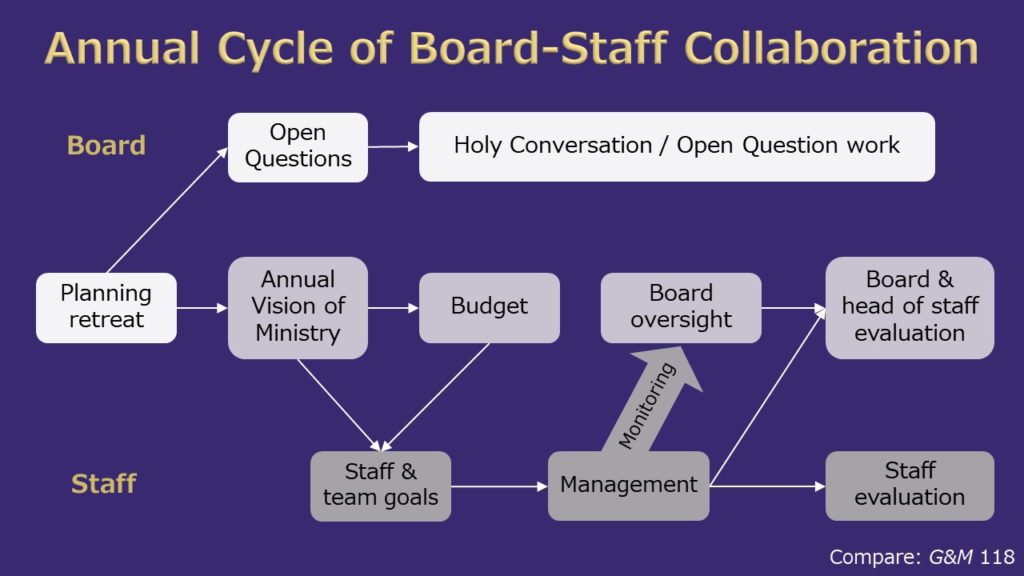When I speak or teach about my book Governance and Ministry, someone almost always says, “That’s all well and good for large congregations with a lot of staff. But we are small. Our board would love to delegate, but there is no one they can delegate to.”
boards
The Board’s Job in Times of Rapid Change

Congregations currently face many choices: How and when will we begin to gather in person for worship and indoor activities? What kind of worship, education, and outreach makes sense, after all that young people and adults have been through? Which postponed projects should take priority in this time?
Governing boards know they should be giving leadership, but many don’t know how. Instead, they spend their time as they did before: listening to reports, delving into the details that interest them, rehashing conversations they and others have had before.
Learning from the CDC’s Mistakes
There’s no reason to expect scientists to be especially good at telling people what to do about an epidemic. The Centers for Disease Control and Prevention (CDC) has done a great job of learning about viral transmission and evaluating treatments and vaccines. In front of the microphones, they’ve scored a B+ at best. Their main …
How Boards Plan
Around the world this fall, boards gather at their online tables to ask, “What kind of congregation can we be in this strange time? When and how can we return to ‘normal,’ and what will that even look like?” Some deny the possibility of planning in such times, but without deliberate planning, habit and momentum rule. Without structure, planning conversations run in circles or explode in conflict. At this time even more than most, boards need structured ways to talk about the future.
How to Be Transparent About Money

“I wish we were more transparent about our finances.” For almost every problem congregations face, transparency is one proposed solution. Treasurers and business managers—who work hard to produce honest, accurate reports—often are surprised by the implication that they’re hiding something. Transparency is good, but flooding people with more data rarely solves the problem. True transparency requires a plan to give financial information to each of four distinct audiences.
Agenda Items for Your Board this Summer
Last March as we began to realize the seriousness of the COVID-19 pandemic, congregations entered a creative frenzy. We found ways to offer worship, pastoral care, group fellowship, and education online. Long-range plans went out the window as we rose to short-term challenges.
Governing boards—even those that generally spend time planning and discerning—have understandably become preoccupied with short-term matters. Board members are busy finding groceries, caring for children out of school, and helping out with this or that around the congregation. But “this or that” is not the work of governance. Eventually boards and clergy leaders must return to their core work and formulate a fact-based and compelling vision of the congregation’s future.
All I Really Needed to Know I Learned at Work
Talking openly about occupational subcultures helps make board conversation richer and more fruitful.



